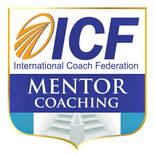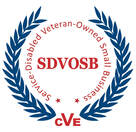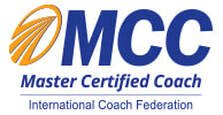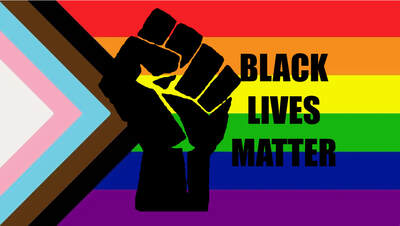 BLACK LIVES MATTER I am against systemic racism, I am against police brutality I am against the over militarization of local police to the detriment of needed social services. We must stop feeding fear and cultivate hope.
0 Comments
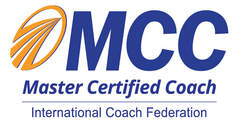 Many of my professional colleagues and friends know that I have been actively working towards my Master Coach certification. Well after a long journey, news came in yesterday that I have met all of the qualifications and been awarded the credential of Master Certified Coach (MCC). So many thanks and much love goes out to my husband, Scott for all his support, and the many dear friends and colleagues that helped along the way - especially Sue, Janine, Pat, and Dan.  So happy and very honored to be presenting at the International Coach Federation's Global Leaders Forum on ethics and leadership. The event starts in a couple of days - already seeing some Global staff ... the excitement is building! Ireland is absolutely beautiful and the people are amazingly warm and go out of their way to be helpful and kind. My favorite part so far - the scenery of Dalkey was so lovely, the homes, cottages, and sea views just gorgeous. My favorite mode of transport is the public buses - fast, easy and these folks know what they are doing! Plus they are incredibly helpful for understanding how to get where ever. Going to Dublin? Learn more about this excellent way to get around here: www.transportforireland.ie/dublin-bus/
Part Three of the International Coach Federation's Code of Ethics is a pledge that coaches agree to comply with. The Pledge contains many important points that I'd like to review here - so let's examine it and parse it out.
Part Three: The ICF Pledge of Ethics: As an ICF coach, I acknowledge and agree to honor my ethical and legal obligations to my coaching clients and sponsors, colleagues, and to the public at large. I pledge to comply with the ICF Code of Ethics and to practice these standards with those whom I coach, teach, mentor or supervise. If I breach this Pledge of Ethics or any part of the ICF Code of Ethics, I agree that the ICF in its sole discretion may hold me accountable for so doing. I further agree that my accountability to the ICF for any breach may include sanctions, such as loss of my ICF Membership and/or my ICF Credentials. As an ICF coach - in short this means if you have an ICF credential (ACC, PCC, MCC) or if you are an ICF member. I acknowledge and agree to honor my ethical and legal obligations to my coaching clients and sponsors, colleagues, and to the public at large. - Here the coach both demonstrates awareness of and further commits to uphold their ethical and legal obligations that can arise out of the many relationships one can engage in while acting as a coach. Notice the language states only "ethical and legal obligations" and not something more specific like Standards set forth in this Code. My opinion on this choice of language is because the Code may or may not always apply to situations involving clients, sponsors, colleagues, and the public. For example, maybe the coach became aware of some proprietary information from a potential sponsor during an exploratory conversation. The coach was not hired but still has the information. So to cover that potential gap, the Code is prompting the coach to do the right thing by their obligations that may fall outside of specifics covered by the Code. The promise of course extends to clients and sponsors, but colleagues are included. Many coaches collaborate and form business partnerships with other coaches or professionals. Maintaining ethical obligations is just as critical in these situations to help advance the collegiate development of the profession. And this responsibility extends to the public at large to help protect the integrity of the profession in the eyes of our potential and contracted clients. I pledge to comply with the ICF Code of Ethics and to practice these standards... - In this phrase, the coach makes a solemn promise, an undertaking, to be in compliance with the Code and to put into practice, to use, the standards as guidance and direction for acting in the capacity of a coach professional. This isn't just about lip service rather it's knowing and applying the Code. In the words of an esteemed colleague, if a coach thinks there is an issue, check the Code... "What's the Code say?" ... and to practice these standards with those whom I coach, teach, mentor or supervise. - The Code doesn't just apply to clients or those that are coached. These standards are applicable to interactions with students, mentees and those the coach supervises. Confidentiality, contracting, avoiding sexual or romantic relationships, etc are all part of and essential to providing a safe space for professional development and personal growth. If I breach this Pledge of Ethics or any part of the ICF Code of Ethics, I agree that the ICF in its sole discretion may hold me accountable for so doing. - This sentence indicates an acceptance on behalf of the coach that they will be held to account if they breach the Code and the Pledge. Credential holders and members initially agree when submitting their application for a credential or membership to abide by the Code and to submit to the Independent Review Board (IRB) process. This clause again affirms the coaches' awareness and acceptance of accountability. I further agree that my accountability to the ICF for any breach may include sanctions, such as loss of my ICF Membership and/or my ICF Credentials. - Coaching is not regulated by government and so there are no punitive or administrative actions that can be taken against a coach from a regulatory standpoint. The ICF Code of Ethics provides essentially all of the governance and oversight our profession uses. When a breach is found, a member coach or credential holder agrees to the accountability provision. While a grieved party can still independently file a lawsuit against a coach, the ICF's Independent Review Board can only impose sanctions such as writing an essay, attending additional hours of coach training, and revoking membership or a credential.  As 2018 comes to a close, I wanted to say thanks to all of my clients - corporate, government and private individuals. Everyday, I cannot believe the exciting and fulfilling career I have as a coach. Organizations and individuals give me the privilege of working with them and trusting me to help them achieve objectives. As an instructor, I'm continually humbled by the expertise of my students and I am so fortunate to cultivate knowledge from them and I offer my appreciation for a great year. If you're reading this, I want to thank you for sharing your time with me and may you, my clients and students have the absolute best holiday season and a prosperous new year.  The coaching agreement between a client and a coach is a legal contract - it's a document that captures the terms of the coaching relationship and helps eliminate surprises. There are some that move forward with a coaching engagement with no agreement or one that is poorly drafted The following are some basic points about the coaching agreement that you should consider whether you are a coach or a client. If You Are a Coach. As a professional life coach, executive coach, business coach or any kind of coach, you should have a coaching agreement. Not having a good agreement in place can generate business related problems and lead to clients or potential clients loosing confidence in you. The International Coach Federation has available a model coaching agreement that you can refer to. While it's not the best, it's a start and one that can be tailored to your specific needs. If You Are a Client. If you are considering hiring a coach - first, congratulations on making this important decision to invest in you! But if the coach you work with does not produce a coaching agreement for you to review and sign, you may want to think twice before committing. The particulars of the coaching, how the sessions will be conducted, the length of the sessions, are the sessions in person, over the phone, who calls who, etc. You have a right to know this information before you get started. You and the coach should first come to a verbal agreement about this which later becomes the written and signed coaching agreement. Protection for the Parties. The client is protected by being made aware of particular information including logistics, fees, scheduling, inclusion of others if appropriate. Additionally, the coach should include their late to appointment, cancellation and payment policies so the client understands them. The coach is protected because they can be assured that the client has read and agrees with the agreement as evidenced by their signature. I invite you to take a good look at your coaching agreement and make sure that it meets your needs and comports with the ICF Core Competencies and Code of Ethics. Stay tuned for more discussion about the coaching agreement in future blog notes.  A coach must create a safe space for clients to bring and discus their agenda. This is the bedrock of why confidentiality is so important in coaching. But it doesn't stop there. A coach should be mindful of all communications they have whenever they are acting in the capacity of a coach, mentor, supervisor, trainer, and consultant. As noted, this strict adherence to confidentiality applies not only to clients and sponsors but also to students and fellow coaches. Students of mine often express concern that the ICF Code of Ethics doesn't define confidentiality. Below, I have thrown together my interpretation of the Code's intent on the matter and offer it up for your thoughts. Confidentiality – In the coaching profession, confidentiality is not just a skill but an expectation. Coaches occupy a unique and powerful position where individuals and organizations share and trust sensitive and personal information to them. Anyone communicating with a coach must be able to open themselves completely and know without a doubt that their communications to the coach are protected. Therefore a coach must have a very high standard of confidentiality in all interactions:
A coach may divulge confidential information in the following circumstances:
Confidentiality Policy – A standard operating procedure where the coach or coaching firm addresses the protection of communications (written, electronic or otherwise) relevant to conducting business as a coach, trainer, facilitator, or consultant. Components of the policy could include a statement of organizational intent, guidance on storage of client records, procedures in the event of a compromise. Support staff must be aware of and comply with the confidentiality policy. This month I completed the four month training cohort to gain proficiency in the PCC Markers. What a powerful and truly educational experience. This journey has really helped strengthen my coaching and certainly helped me become a better trainer for my students.
If you have not signed up for the International Coach Federation's PCC Markers training, I strongly suggest you do. Even if you are not intending on being an exam assessor or not in a training environment, the education is so much worth the benefits you and your clients will gain. I especially want to thank the credentialing staff at ICF - Carrie Abner, and Angie Holleran, and the trainers/ facilitators Margaret Krigbaum, MCC, and Guiseppe Meli, MCC, and Pat Mathews, MCC, and Julie Shows, MCC, for putting together such robust and engaging training. They all have truly worked to advance our profession and it was an honor to learn from them. Thank you! When I teach ethics to my coaching students and we examine the International Coach Federation's Code of Ethics, I'm often asked what's the purpose of the Code Preamble, or "Does it matter?". Is it just an introduction, a preface to the Code?
The way that I answer is by reading the Preamble and breaking it down piece by piece and illustrating my interpretations of it... which you know, must be correct! Lets dive in and examine what the Preamble offers. ICF is committed to maintaining and promoting excellence in coaching. This is an important statement because it lets the world know right away what the ICF is here for. The mission statement of the ICF in part reads "...lead the global advancement of the coaching profession." What better way to do this than by maintaining and promoting excellence? As a coach, I am thankful to have this large association working for the best interests of the profession by continually promoting excellence. In fact, this should be an objective of all coaches - to continually preserve the integrity of the (our) profession. We do this by first protecting and honoring our clients, also by a consistent dedication to increasing our competence in coaching, and finally by spreading the word about coaching and how beneficial it is to society. Therefore, ICF expects all members and credentialed coaches (coaches, coach mentors, coaching supervisors, coach trainers or students), to adhere to the elements and principles of ethical conduct: to be competent and integrate ICF Core Competencies effectively in their work. In this next sentence, parameters are set as to who the ICF expects to use and abide by this code. In my opinion, this statement has a broad application and applies to anyone associated with the ICF through membership and credentialing. An argument could be made that even students in an ICF approved curriculum could be held to the ethical guidelines set out by the Code. It is my thought that the Code imparts additional responsibility to act ethically in a general sense as well - not just when you are being a coach (or a trainer, student, mentor coach, or supervisor, etc.). This means being a good business person, a good consultant, trainer, etc. Coaches are given advice to be competent in their craft. We do this by continuing education and always learning. When we coach, we want to be curious with our clients - we must be curious in our own development too. We also do this by integrating the Core Competencies into our coaching - my recommendation is to print out the Competencies and refer to them often, even daily, to keep your focus sharp. In line with the ICF core values and ICF definition of coaching, the Code of Ethics is designed to provide appropriate guidelines, accountability and enforceable standards of conduct for all ICF Members and ICF Credential-holders, who commit to abiding by the following ICF Code of Ethics: This final sentence of the Preamble tells us that the Code along with the ICF definition of coaching and the ICF core values provide the coach with guidance, a hook of accountability and enforceable standards by which we can use in our coaching relationships and our business. You may be wondering what enforceable means. There is a process by which a client that believes a coach has breached the Code can make a complaint against a coach. The ICF's Independent Review Board (IRB) oversees this process. Once a complaint is received and validated, the IRB assigns it to investigators who collect evidence, and draft a report. The completed report is then passed on to a panel of final reviewers that will determine if a breach of the Code has happened. If so, the coach will be assigned remedial actions which could include mandatory training, etc. All ICF member and credentialed coaches implicitly agree to this by way of their membership or credential. So there you have it - while the Preamble may look like just an introduction to the Code, once parsed out it has a lot of information and packs a pretty big punch. What do you think? How often are you reviewing the Code of Ethics or the Core Competencies?Leave a comment below. It's very exciting and rewarding to be a professional coach. Since starting this journey, I have remained committed to continuing my education and moving upward. Part of that plan is to become an International Coach Federation Master Certified Coach (MCC). This is the highest level of coach credentialing the ICF offers and is a qualification I don't take lightly. When I became a Professional Certified Coach (PCC) I was especially proud and so very excited. But I also realized I was representing a high standard of coaching excellence set out by the ICF and the many other PCCs in the field. So moving toward the role of an MCC suggests even more responsibility not just to clients but to the profession.
Over the years, I've had the privilege and honor of collaborating with many master coaches. Often they have shared with me their insights and practice points that I've been able to weave into my own practice. Based on their mentorship and advice, I feel poised to take this next big step in coaching. Becoming an MCC requires additional training and education. Here again, I've been fortunate to train with some of the most incredible people. I never get tired with advancing education, especially when it's from committed and exceptional colleagues. Probably the most rewarding part of moving toward this objective is getting all of the required coaching hours with clients. To become an MCC, one needs a total of 2500 client coaching hours. My time with clients has proved to be so enriching, and with every session, I walk away having learned more about coaching, myself and of course the richness of the client. I'm excited to be on this journey, keep checking in and I will update my progress on here periodically. And to all those that have helped get me to this point in my career - thank you! The coaching school that I serve as the Director of Learning for MentorCoach LLC is hosting an exciting Master Class/ webinar that I cannot wait to attend, (the class starts in October). If you are interested in the Values in Action (VIA) Character Strengths assessment and interventions or Ryan Niemiec, Psy.D. and his work in character strengths this is for you.
Here's the sign up information: THE CHARACTER STRENGTHS INTERVENTIONS MASTER CLASS Learning to Unleash What’s Best in You and Your Clients A Webinar Led by Ryan M. Niemiec, Psy.D. Psychologist, Coach, International Speaker, Education Director of the VIA Institute on Character, Widely considered to be the world’s leading expert on the science and practice of character strengths, and author of seven books including his latest, Character Strengths Interventions: A Field Guide for Practitioners. Tuesdays at 2:00 PM Eastern (New York) Starts Tuesday, October 2, 2018 Eight 75-minute Classes 10 hours of CEUs and ICF CCEUs 10 hours Toward Coach Certification A Webinar - All Classes Recorded Learn more and sign up for the webinar at: http://www.mentorcoach.com/class/character-strengths-interventions/ Recently I became part of the latest cohort to be trained in the new International Coach Federation's PCC Markers. Many have criticized the new markers for various reasons (including myself)... why fix something thats not broken? But the more I have learned about and applied the markers, the more impressed I have become. Going through the training has allowed me to realize how I can better serve my clients by incorporating the spirit of the markers.
What I see moving forward with the markers training is two distinct advantages: First - By using the markers, coaches will undoubtably become better in their work with clients. Lets look at the Competency 2 Markers: Creating the Coaching Agreement. 1. Coach helps the client identify, or reconfirm, what s/he wants to accomplish in the session. 2. Coach helps the client to define or reconfirm measures of success for what s/he wants to accomplish in the session. These first two markers serve as vital reminders to the coach of who is in charge of the session and the importance of coach and client partnering to get the most from the session. Where are we going with this and how will we know when we've arrived? These simple questions provide a GPS for the forthcoming exploration and help illustrate progress and ultimately the session results. 3. Coach explores what is important or meaningful to the client about what s/he wants to accomplish in the session. By the coach exploring this question, the client can express both to themselves and the coach the foundational motivation behind the session's agenda. This can also help the client gain even more focus on their intended outcome. 4. Coach helps the client define what the client believes he/she needs to address or resolve in order to achieve what s/he wants to accomplish in the session. There are obstacles and challenges to every goal or objective. This marker aids in bringing these to light early on so that momentum can build and remain steady. Once a client knows the way forward we want to know what we may need to manage or clear along the way. 5. Coach continues conversation in direction of client’s desired outcome unless client indicates otherwise. The importance of this marker is that it reminds me as the coach - who is really in charge of the session. Coaches must always defer to the agenda and intent of the client. It's their session, it's their circumstance, we are just honored to be the coach and help them reach objectives. As such, our questions, comments and observations should remain faithful to those stated objectives unless the client shifts directions. As we can see from the above comments the coach will certainly enhance their contribution to the client by operating within the markers. Second - Those seeking a credential from the ICF now have much clearer guidelines within which to practice their coaching and thereby attain their PCC. By no means am I suggesting to use the markers as a checklist or roadmap to coaching a client, but it can be used as a series of reminders of how one can better engage with their client and thus help the client maximize results. A practice that I recommend for all coaches - record your sessions with clients, and go back and listen to them with a copy of the markers at hand. This self-grading will help you find areas to improve on and note others where you are showing competence. The ICF Code of Ethics provides sound advice regarding confidentiality and professional coaches that have staff working for them.
27) Require all those who work with me in support of my clients to adhere to the ICF Code of Ethics, Number 26, Section 4, Confidentiality and Privacy Standards, and any other sections of the Code of Ethics that might be applicable. A question comes to mind - just who is included in the phrase "those who work for me in support of my clients". The answer could be broad and include part and full time employees, remote contractors, virtual assistants and partner coaches/ consultants from outside firms. In fact, it could be argued that even family members that provide support services to the coach are included. Having best practice in place, regardless of the size of your coaching practice, is the best way to ensure client confidentiality and privacy. Here are some strategies that can be deployed that can help your firm develop best practices.
While I love coaching and helping clients maximize their potential, I also love discussing ethical considerations in coaching. A question that often comes up in coaching is when does the actual coaching relationship start?
In my opinion the answer to this question is based on the potential client’s perception. This is why it’s incumbent on the coach to inform the perspective client when actual coaching has started versus initial consultation, etc. Here are some strategies that may help keep all parties clear: The coach should differentiate between an informational consultation call and a real coaching session. “Thanks for giving me this opportunity to talk to you about coaching – if it’s okay with you, we can spend 20 minutes or so and I will explain what coaching is and how I work as a coach and along the way, you can ask me questions… and just so you know, this is not actual coaching, just a consultation.” “Great… it sounds like you are ready to get started and I am very excited that you have decided to work with me. In order for us to get started actually coaching, I need you to review and sign our coaching agreement.” “I see you have signed and returned our coaching agreement, thanks for getting that back to me. Since you have no questions about the agreement let's go ahead and get started with coaching… ” While the above dialog may seem elementary, it is important to clearly set client expectations. If the coach is not clear, and if the client believes a coaching relationship has started then a fair argument can be made that it has. But who cares? No one really until something goes wrong. Think of the coach that also offers consultation services or facilitates strategic planning, etc. This is what makes having a solid coaching agreement in place such a spectacular idea. All parties know what to expect and there are no surprises. In fact, the coach can even have in her coaching agreement a provision that reads something like: “A coaching relationship implies certain rights and responsibilities for both parties. Our coaching relationship does not start until this coaching agreement is signed by both parties.” The above strategies achieve two ends, it ensures the client is clear when the relationship starts and it ensures the coach uses an agreement. But this assumes the coach is really using an agreement. The coaching agreement is everyone’s friend, without it the client lacks clarity and it’s hard to say when the relationship has started and the coach forfeits a valuable opportunity to educate and set expectations. What are your thoughts? 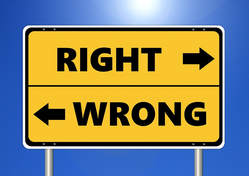 Coaching is in my blood. As such I teach coaching too, at a school named MentorCoach LLC. My next ethics class - Safe Passage is starting up on January 29th, 2018. The class will meet for ten weeks, every Monday starting at 1:00 pm EST. Here's my invitation for you to take pause and consider your current business processes, how you may handle third-party contracts, confidentiality breaches, liability risks in business, or a customer lodging a formal complaint against you. In class, we'll address these situations and much more. You can read about the class here: mentorcoach.com/courses/ethics_and_risk_management.htm This is a great opportunity to learn about ethics and risk management in coaching and round out your coaching practice while learning of ways to decrease the risk associated with any business. 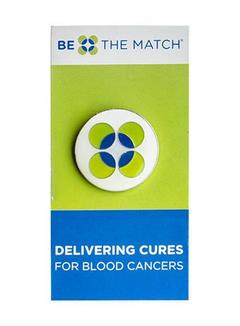 Want an easy way that you can become a life saver? Then join the National Marrow Donor Program (NMDP). Your selfless act may offer new life for a person with leukemia or lymphoma. For me personally, I am so thankful for the NMDP in it's effort to collect donor information and provide education and resources. And I'm especially happy and thankful for my donor for giving me a second chance at life. You can learn more about the National Marrow Donor Program here: bethematch.org/about-us/ 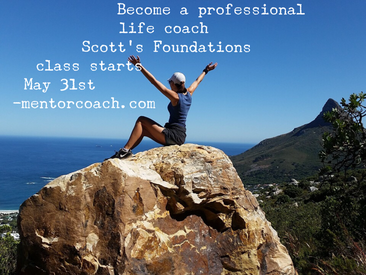 I love coaching! In fact I love it so much that I teach people how to become coaches. In late May, I will start a 31 week Foundations class that teaches you so much about coaching and how to get into this emerging and exciting business - I can't wait to get started! As the director of learning for MentorCoach LLC, I personally try to teach this class twice a year... there is just so much content and exciting stuff that I look at it like a complete 'refresher training' for me! Also, because we have so many exciting people (from around the world) in the class, you build connections and relationships with people with the same mission - to help others. Foundations is a step by step program that is designed to give you everything you need to get started coaching others. If you are interested in becoming a coach, I invite you to check out the MentorCoach.com website and learn about our Foundations program. Join my class - it will be great to have you! If you have any questions, please message me here.  Really happy today for a big accomplishment, I have now connected all of my social media accounts to my website. Sounds easy enough, but with all the competing demands in my life, it was really a tall order to get it done. This is a task that I have encouraged so many of my small business owner clients to do - such an easy way to stay in touch with your audience. I invite you to check out the social media buttons over on the right hand side of this page and visit me on other platforms. Heres a question for you - what do you consider to be the hottest or most important social media platform? Why? Thanks!  Received a very nice note and some swag from the Thumbtack team this week. In case you don't know, Thumbtack is a great platform where professionals list their services and consumers can request and hire professionals for specific needs. My family has used Thumbtack to find contractors for home repairs. Whether you need a photographer or a new roof for your house, I invite you to consider checking out Thumbtack next time - it's really easy to find a professional for your next project 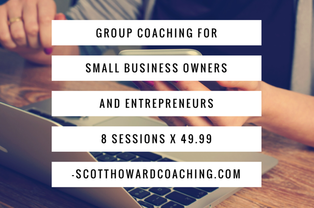 Once again we are starting a group coaching cohort for small business owners and entrepreneurs. The group will start March 23rd, 2017 at 7:00 pm EST, I try to keep the group to around 10 - 12 participants. You join by calling a telephone bridge line where we meet and then I coach the group on a variety of issues facing small business owners such as: - Developing strategic plan, - Assessing your strengths, - Social media marketing, - Creating work-life balance, and more. This is a great way to experience coaching at a more economical price point. Plus, you get robust insight and experience from the other participants on the call. Want to learn more? Shoot me an email and we'll chat by phone, I'd be happy to answer your questions.  Recently I went to a pharmacy to pick up some medication. This particular pharmacy is a small, privately owned establishment and not part of a large chain. So kinda like a mom and pop, neighborhood place. I specifically support them because they are a small business and because they are located nearby. Once inside I walked up to the counter and stood, waiting patiently to be served. Meanwhile, four employees all about six feet away from me chatted about personal matters, occasionally looking at me, and even making eye contact. A few minutes went by, and still, I am standing there waiting to be acknowledged, occasionally I smile at one of them to be polite. At this point, I am starting to study the situation... as a coach I often do just that. Here we have a small business (pharmacy), with four employees all that have seen me, and all of them are just 'shootin the breeze'. Not one of the four have greeted me, even though I am in the place quite often, and so they likely recognize me. Five minutes pass by and no one has taken an interest in me - the customer. So I leave. Less than a block away, there is a CVS and two blocks away a Rite Aid. Both open 24 hours, and both have substantially more consumer resources than the mom and pop place. I go to the CVS to get my needs met and I am greeted by a person at the front register and later greeted by the pharmacist. As a coach, I've advised many small business owners and entrepreneurs on basic customer service concepts. Here are a few for your consideration: Acknowledging the customer right when they enter into your establishment. Don't go overboard with this - but say 'hello', or 'hi'... it goes a long way. Let the customer know they are welcome and that you see them. Recognizing regular customers is something many places are failing to do but this is a great way to make the customer feel special and build loyalty. Being accountable when it becomes obvious that a customer may not have had the best experience in your establishment. Learn from your customer service mistakes and prevent the same from happening again. Again these are very fundamental measures that have no cost but can pay big dividends for your future business. Customers are your business - if you do not cultivate, respect and honor them, they will walk. Is your business keeping the customer in focus?  As a coach, I always talk to clients and students about thier goals. But I wanted to share and publish one of my personal goals for 2017 - decluttering my life. For the new year, I've committed to decluttering my life, thinning out junk, getting rid of 'stuff'. Specifically throwing out all those extra items that I just don't need or use anymore. Donate some of them, maybe sell a few, recycle others and finally if there is no other option then commit the item to the trash. This is an important exercise because our society constantly affords us opportunities to consume and collect stuff and now, I am deliberately setting aside time to purge and get rid of stuff. By doing this, I create more space in my home and office physically, but also on a mental level. I will keep you posted on my progress and please feel free to comment or send me an email on your goals for 2017.  Recently I came by this excellent article by Tim Urban, a writer illustrator at waitbutwhy.com. It's a short but telling article that really helps put priorities, time, and life in perspective. After reading this, I had to stop and ask myself "What really is important in my life?" Enjoy! Check it out here: http://waitbutwhy.com/2015/12/the-tail-end.html |
ScottHowardCoaching LLCAuthorScott Howard is a professional executive coach and leadership coach focusing on human empowerment and maximizing potential. Archives
June 2020
Categories |
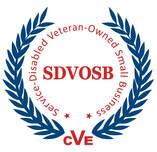

 RSS Feed
RSS Feed

